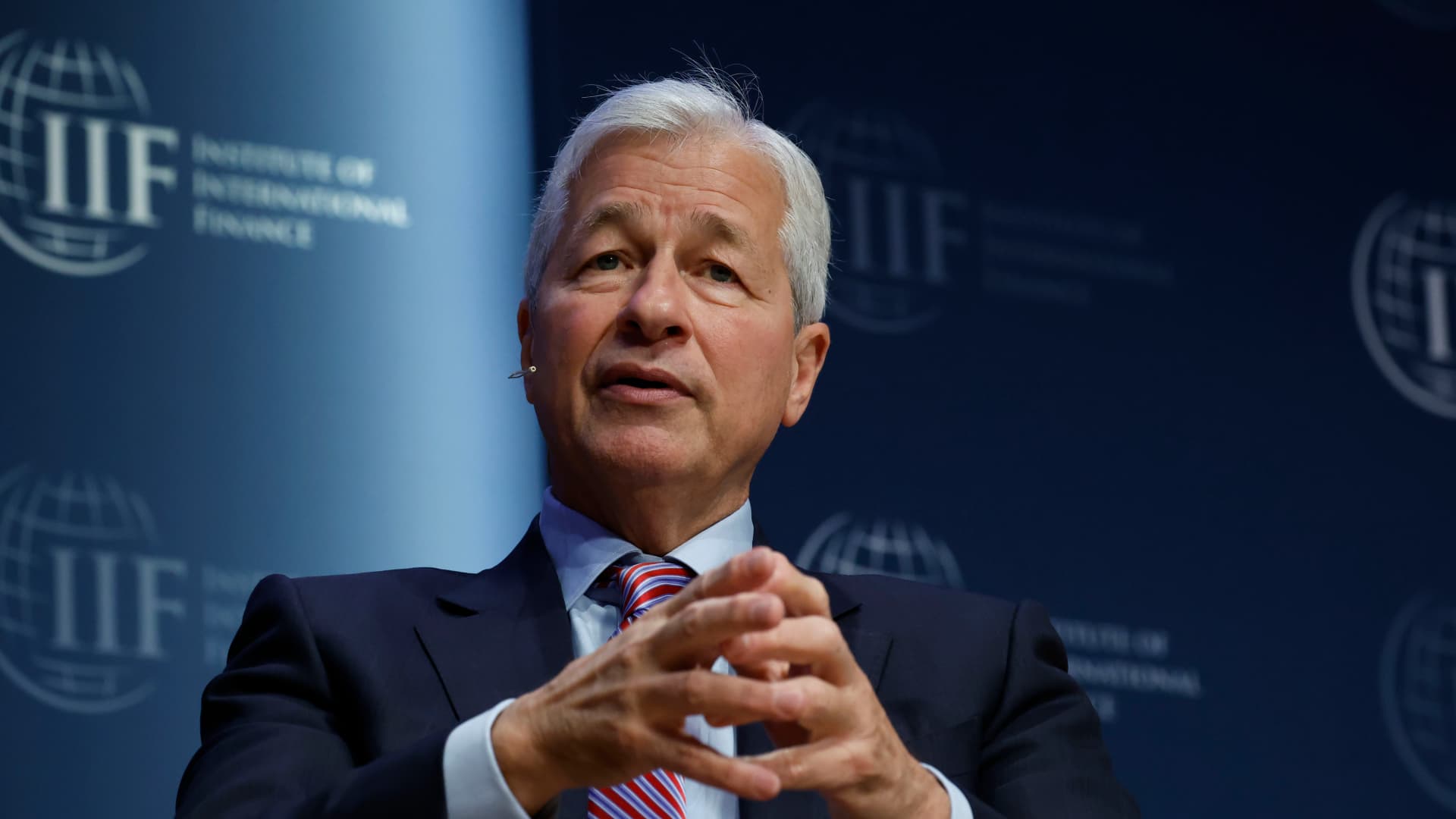JPMorgan Chase on Friday topped analysts’ expectations for third-quarter profit and revenue as the bank generated more interest income than expected, while credit costs were lower than expected.
Here’s what the company reported:
- Earnings: $4.33 a share
- Revenue: $40.69 billion, vs. $39.63 billion LSEG estimate
The bank said profit surged 35% to $13.15 billion, or $4.33 a share, from a year earlier. That figure was not immediately comparable to the LSEG estimate of $3.96 a share; JPMorgan had a $665 million legal expense in the quarter that if excluded from results would’ve boosted per share earnings by 22 cents.
Revenue climbed 21% to $40.69 billion, helped by the stronger-than-expected net interest income. That measure surged 30% to $22.9 billion, exceeding analysts’ expectations by roughly $600 million. At the same time, credit provisioning of $1.38 billion came in far lower than the $2.39 billion estimate.
JPMorgan shares climbed 1% in premarket trading.
CEO Jamie Dimon acknowledged that the biggest U.S. bank by assets was “over-earning” on net interest income and “below normal” credit costs that will both normalize over time. While surging interest rates caught some smaller peers off guard this year, causing upheaval among regional lenders in March, JPMorgan has navigated the turmoil well so far.
Dimon warned that while American consumers and businesses were healthy, households were spending down cash balances and that tight labor markets and “extremely high government debt levels” meant that interest rates may climb even further from here.
“The war in Ukraine compounded by last week’s attacks on Israel may have far-reaching impacts on energy and food markets, global trade, and geopolitical relationships,” Dimon said. “This may be the most dangerous time the world has seen in decades. While we hope for the best, we prepare the firm for a broad range of outcomes.”
Bank stocks plunged last month after the Federal Reserve signaled it would keep interest rates higher for longer than expected to fight inflation amid unexpectedly robust economic growth. The 10-year Treasury yield, a key figure for long-term rates, jumped 74 basis points in the third quarter. One basis point equals one-hundredth of a percentage point.
Higher rates hit banks in several ways. The industry has been forced to pay up for deposits as customers shift holdings into higher-yielding instruments like money market funds. Rising yields mean the bonds owned by banks fall in value, creating unrealized losses that pressure capital levels. And higher borrowing costs tamp down demand for mortgages and corporate loans.
Analysts will want to hear more about what Dimon has to say about the economy and his expectations for the banking industry. Dimon has been vocal in his opposition against proposed increases in capital requirements.
Shares of JPMorgan have climbed 8.7% this year through Thursday, far outperforming the 19% decline of the KBW Bank Index.
Wells Fargo posted results on Friday and so did Citigroup. Bank of America and Goldman Sachs report Tuesday, and Morgan Stanley discloses results on Wednesday.
This story is developing. Please check back for updates.














































